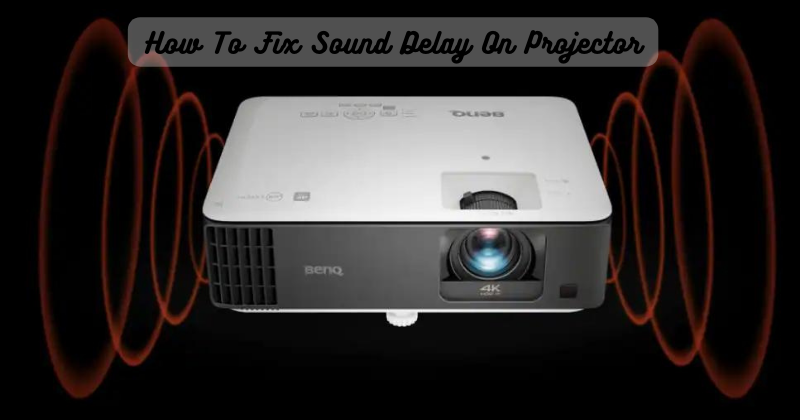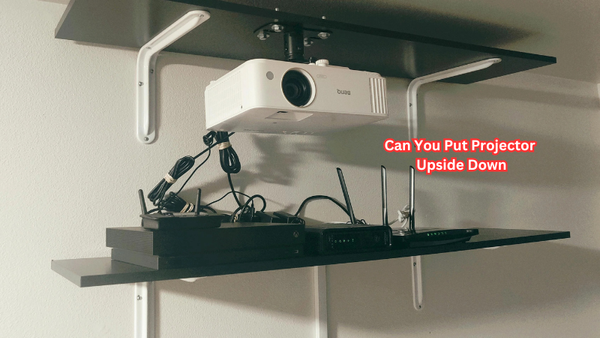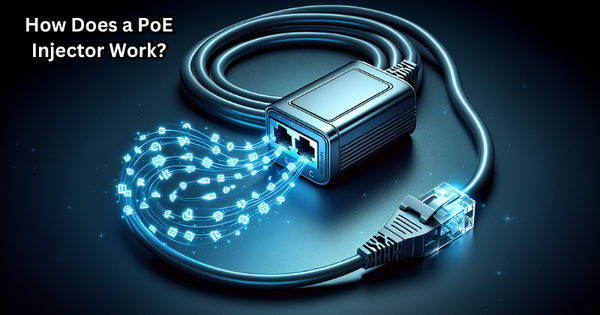Are you tired of experiencing sound delay when using your projector? Don't worry; we've got you covered!
Sound delay can be quite frustrating, especially when trying to enjoy a movie or give a presentation. Fortunately, there are several steps you can take to fix this annoying issue. In this guide, we will explore some practical solutions to eliminate sound delay on your projector. We will walk you through the troubleshooting process, from adjusting the audio settings to using external speakers.
So, whether you're a movie buff or a professional presenter, get ready to enjoy seamless and synchronized audio with your projector. Let's dive in and banish that sound delay once and for all!
What Is Sound Delay Exactly?
Before we jump into the solutions, let's first understand what sound delay is and how it occurs. Also known as audio latency, sound delay is the time gap between when a sound is produced and when it reaches your ears. This delay can vary from a few milliseconds to several seconds. It can be caused by various factors, such as hardware, software, or network issues.
Audio signals travel through different devices and connections before reaching the speakers or headphones, which can result in a delay. Suppose sync audio and video are off by a few milliseconds. In that case, you may not notice it, but when the delay is more significant, it becomes noticeable. It can affect your viewing or presentation experience.
Regarding projectors, sound delay can occur due to the processing time of the audio signal through the projector or any external devices connected to it. This can result in an unsynchronized audio and video experience, which can frustrate viewers.
How to Fix Sound Delay on Projector?
Causes of Sound Delay on Projector
Now that we understand what sound delay is and how it happens let's look at some of the reasons that can cause it, specifically on projectors.
The Volume Level May Be Off/Muted:
It may seem obvious, but the first step to troubleshooting sound delay is to check the volume level on your projector. Make sure it is not muted or set too low. If you use external speakers, ensure they are also turned on and at a suitable volume level. Sometimes, the most straightforward solutions can be overlooked. Don't forget to double-check this step before moving on to more technical troubleshooting.
Audio Settings May Need Adjustment:
Another common cause of sound delay on projectors is incorrect audio settings. This can happen if the audio output is set to a different device or if there are certain settings that need to be adjusted for optimal synchronization. For example, some projectors have an audio delay setting that can be adjusted to match the video delay. You can also try changing the audio output to a different device or using an external audio source for better results.
Audio lag can also occur if the audio input signal is in a different format than what the projector supports, so make sure to check and adjust the settings accordingly. Audio synchronization settings can vary depending on the model and brand of your projector, so refer to the user manual for specific instructions.
Quality Cables or Connections:
The quality of cables and connections used can also contribute to sound delay on projectors. If you are experiencing audio lag, try using high-quality HDMI or audio cables and ensure they are connected properly. Sometimes, loose or faulty connections can also result in sound delay, so make sure all cables are securely connected. HDMI connection is preferred for optimal audio quality and video quality, so try to use them if possible.
Address sound delay issues by using cables and connections that are specifically designed for high-quality audio transmission. Projector audio ports can also get damaged or worn out over time, so it's worth checking and replacing them if needed.
Connection Issues:
Another factor that can contribute to sound delay on projectors is poor connections between devices. Make sure all cables and connections are secure and not damaged, as this can disrupt the transfer of audio signals and cause delays. If possible, try using a direct connection between the audio source and projector instead of going through multiple devices.
Internal Components Overheated:
Overheating can cause projectors to malfunction, including sound delay issues. Check the internal components of your projector and make sure they are not overheated. Some projectors have a built-in fan system to prevent overheating, so make sure it is working correctly. If not, try moving the projector to a cooler area or using an external cooling fan.
Incorrect Position or Location of the Device:
The placement and position of your projector can also affect its performance, including sound delay. Make sure the device is not too far away from the audio source, as this can result in longer signal processing time and cause delays. Also, ensure the projector is placed on a stable surface to prevent vibrations or movement that can disrupt audio synchronization.
Outdated Device Drivers:
Outdated device drivers can also cause sound delays on projectors. Make sure to regularly update the drivers of your projector and any connected devices for optimal performance. Video signals and audio signals work together, so outdated drivers can affect both aspects of your projector's performance.
These are some common causes of sound delay on projectors and how to troubleshoot them. Other factors, such as hardware malfunctions or software glitches, can also contribute to audio lag, so it's essential to keep your projector and all connected devices updated and in good condition.
How To Fix Sound Delay On Projector:
Solutions
Now that we have covered the common causes of sound delay on projectors let's look at some solutions to fix this issue. The following are some steps you can take to troubleshoot and resolve sound delay on your projector.
Check Audio Settings:
As mentioned earlier, incorrect audio settings can cause sound delay, so make sure to adjust them accordingly. Try changing the audio output to a different device or using an external audio source for better results.
If your projector has an audio delay setting, adjust it as needed to match the video delay. Audio transmission settings can vary depending on the model and brand of your projector, so refer to the user manual for specific instructions.
Check the Volume level:
Double-check the volume level on your projector and any connected speakers. Make sure they are not muted or set too low. Volume controls can vary depending on the model and brand of your projector, so refer to the user manual for specific instructions. For external speakers, make sure they are turned on and at a suitable volume level. Bluetooth speaker connectivity can also cause sound delays, so check and adjust the settings accordingly.
For gaming consoles, make sure the in-game audio settings are set correctly for optimal synchronization. For better sound quality, try using external speakers instead of the built-in ones on your projector.
Replace Cables and Connections:
If you suspect poor-quality cables or connections are causing sound delay on your projector, try replacing them with high-quality ones. Make sure all cables are securely connected and not damaged. For audio output, HDMI cables are preferred for optimal audio and video quality.
Check Device Driver Updates:
Updating device drivers can also help fix sound delay issues. Make sure to regularly check for updates and install them as needed for optimal performance. Audio data and video data work together, so outdated drivers can affect both aspects of your projector's performance.
Some specific projector models may require specific drivers, so make sure to refer to the user manual or manufacturer's website for correct updates. You can use automatic tools to update your drivers or manually check for updates on the manufacturer's website.
Adjust Placement and Positioning:
Check the placement and position of your projector, ensuring it is not too far away from the audio source and placed on a stable surface to prevent vibrations or movement. When your projected image and audio source are not aligned, it can cause sound delay.
Adjusting the placement or using external speakers closer to the projector can help resolve this issue. Projector screen materials can also affect sound quality, so make sure to use appropriate screens for optimal audio transmission.
Troubleshoot Internal Components:
If overheating is causing sound delay on your projector, try troubleshooting the internal components and ensuring they are not overheated. Use a cooling fan if needed, or move the device to a cooler area. If the sound delay persists, it may be a sign of a more significant issue, and professional help may be needed.
With these solutions, you should be able to troubleshoot and fix sound delay issues on your projector. Remember to regularly check for updates, ensure proper cable connections, and adjust audio settings for optimal performance. With a well-functioning projector, you can enjoy a seamless viewing experience with synchronized audio and video.
Other Ways to Stop Sound Delays on The Projector
Apart from the solutions mentioned above, there are other things you can do to prevent sound delays on your projector. These include:
- Regular maintenance and cleaning of your projector to ensure all components are functioning correctly.
- Using high-quality audio and video equipment for optimal performance.
- Adjusting the audio delay settings on your projector if available.
- Checking for any software updates or glitches that may be causing sound delays.
- Avoid obstacles or interference between the projector and audio source, such as walls or other devices.
- Speedy HDMI cables for faster and better-quality audio transmission.
- Using a separate audio receiver for enhanced sound synchronization.
Keeping these tips in mind can help prevent sound delay issues and ensure your projector functions smoothly. With proper maintenance and troubleshooting, you can enjoy an uninterrupted viewing experience with synchronized audio on your projector.
FAQs
How can I fix my audio delay?
Audio delay issues can be fixed by adjusting audio settings, checking volume levels, replacing cables and connections, updating device drivers, adjusting the placement and positioning of the projector, and troubleshooting internal components. Refer to the user manual for specific instructions on your projector model.
Why is my projector out of sync?
Projector audio can be out of sync due to incorrect audio settings, faulty or poor-quality cables and connections, outdated device drivers, improper placement or positioning of the projector, and overheating. It is essential to troubleshoot these issues to fix sound delay problems.
How do I fix lagging audio in a video?
To fix lagging audio in a video, you can try adjusting the placement of your projector, using external speakers, updating device drivers, and checking for any software updates or glitches. It is also essential to ensure that all audio settings are correctly configured for optimal synchronization. Additionally, using high-quality cables and avoiding obstacles between the projector and audio source can help prevent lagging video audio.
Can HDMI cable cause audio-video sync problems?
Yes, poor quality or damaged HDMI cables can cause audio-video sync problems. Using high-speed and good-quality HDMI cables is crucial for optimal audio and video transmission.
Conclusion
In conclusion, fixing sound delay on your projector can greatly enhance your overall viewing or presentation experience. By following the steps outlined in this guide, you can easily troubleshoot and resolve this issue. Remember to check the audio settings on your projector and source device, ensuring they are properly synced. Additionally, consider using external speakers or an audio receiver to improve sound quality and eliminate potential delays.
It's also worth checking for any software updates for your projector, as manufacturers often release firmware updates that address performance issues. Lastly, contacting technical support or consulting the user manual for your specific projector model can provide further assistance if all else fails. With these tips, you can enjoy seamless audio synchronization and fully immerse yourself in your favorite movies or deliver flawless presentations. Happy projecting!





